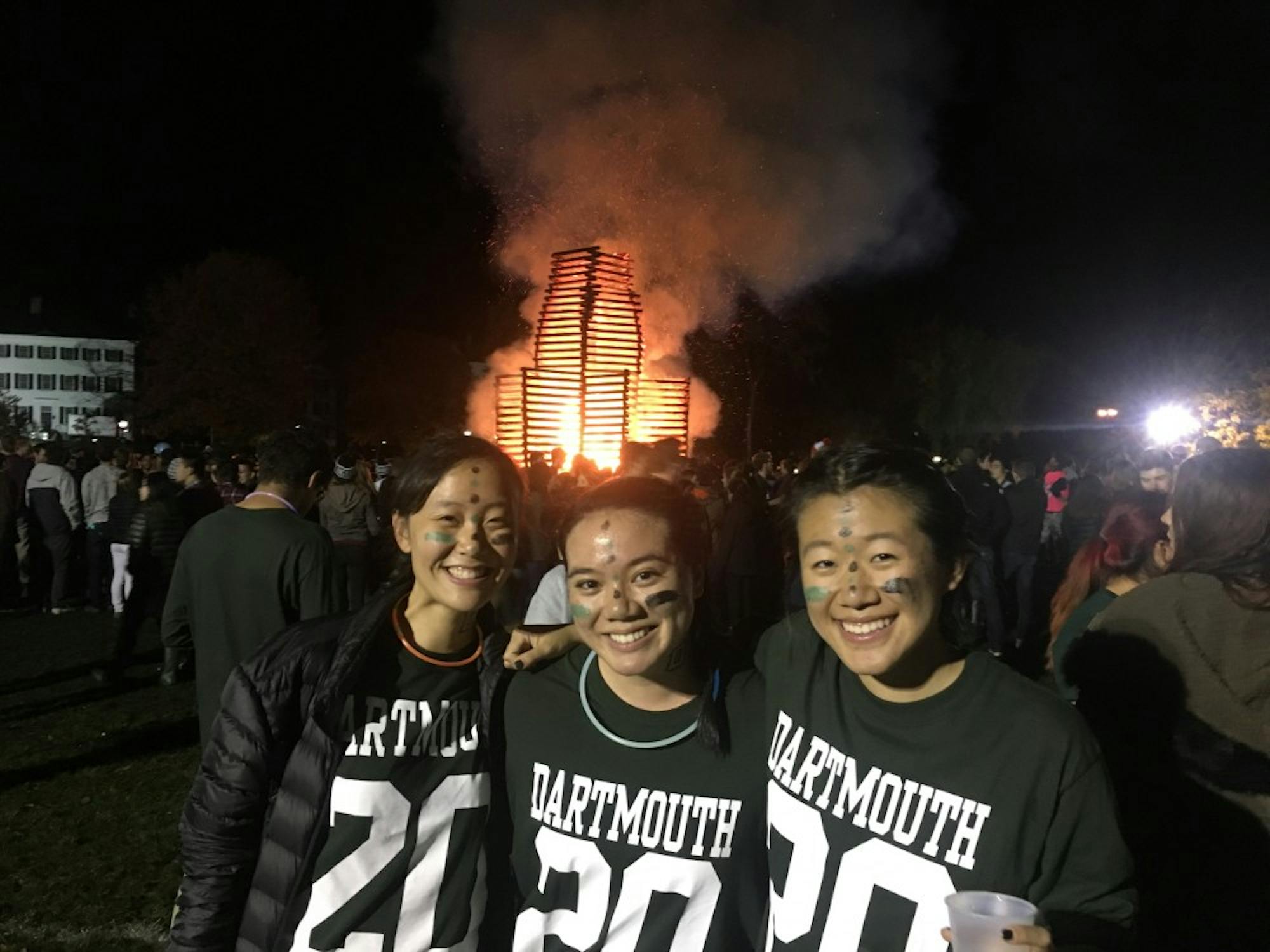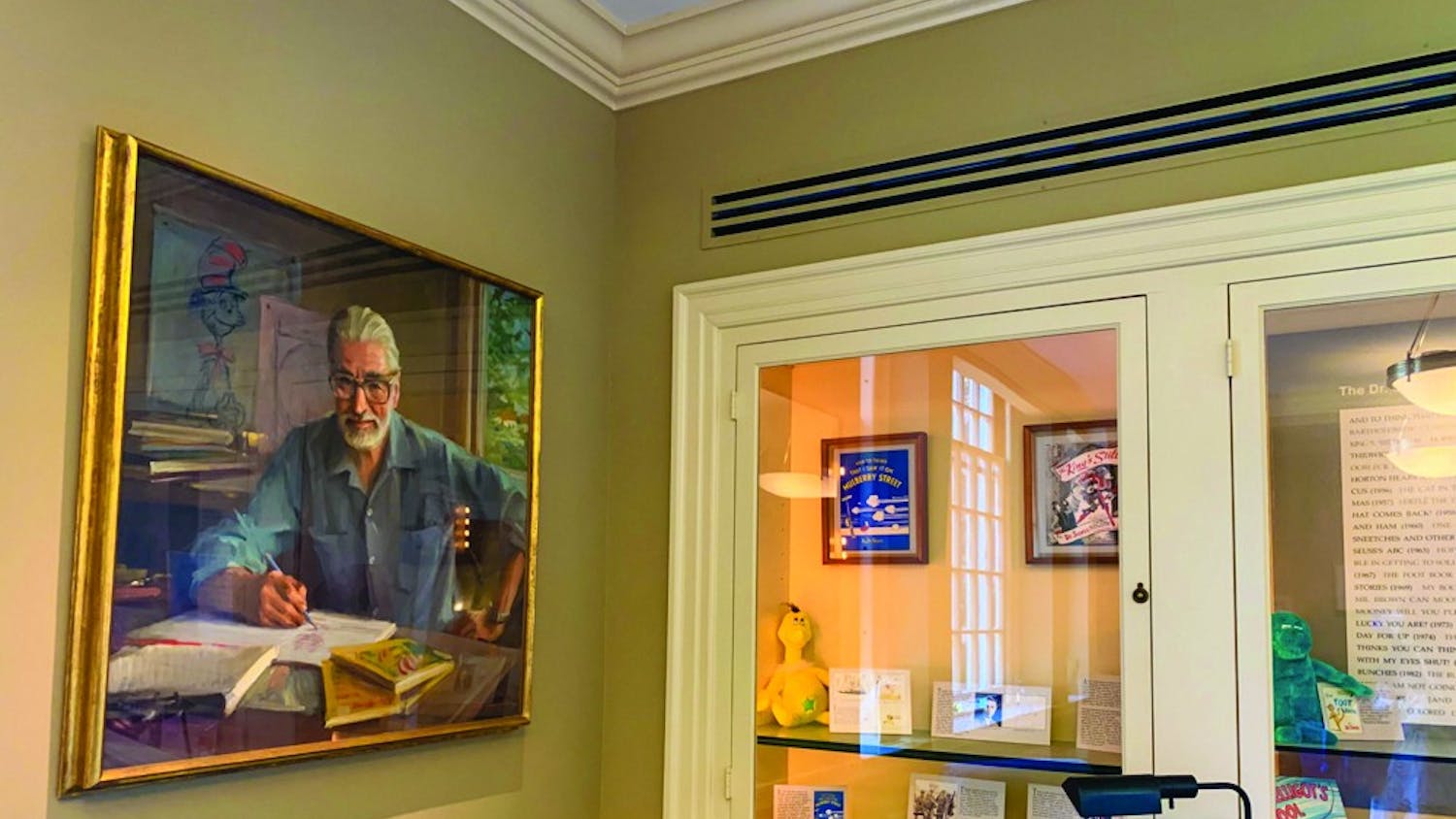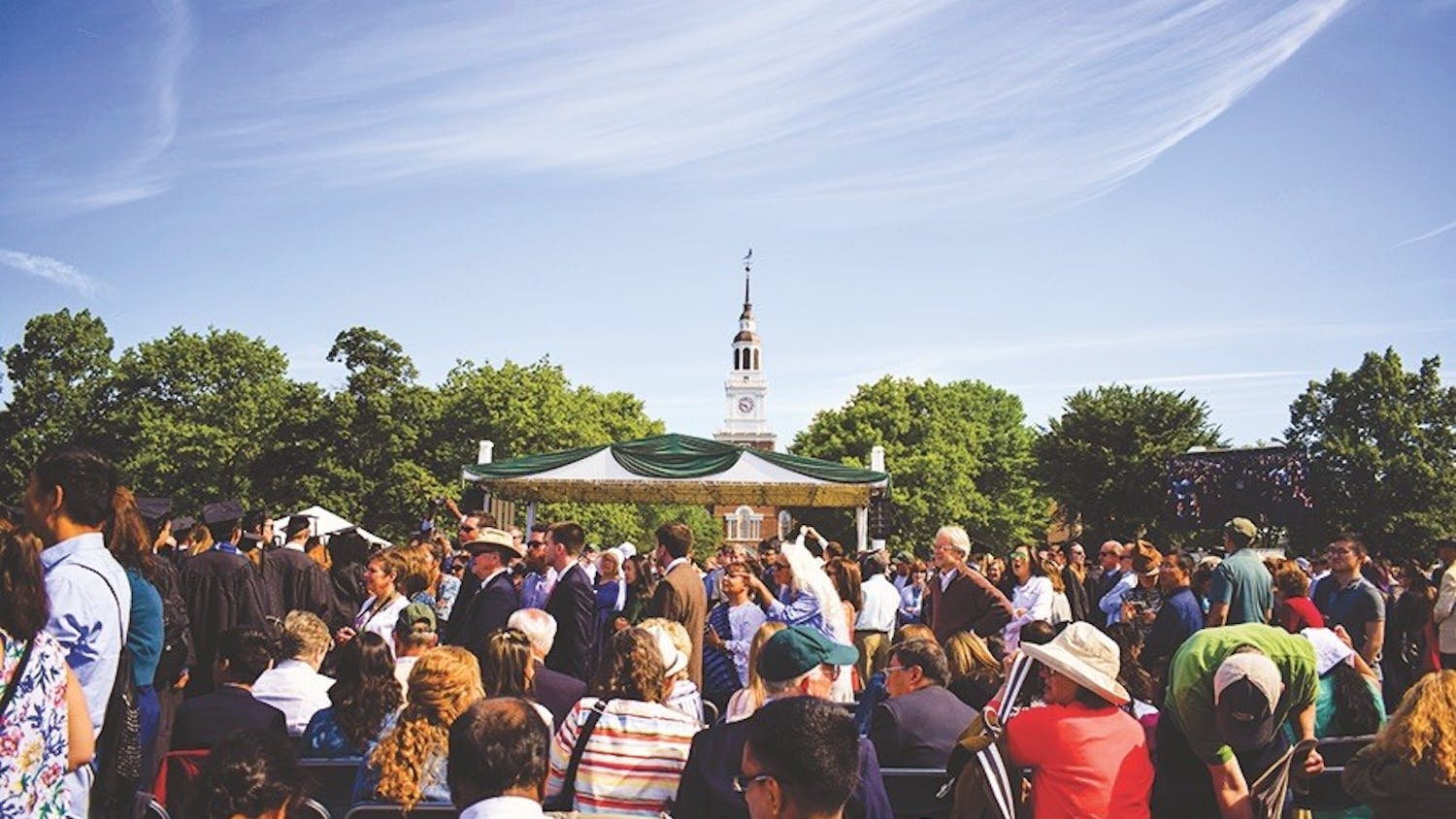When people find out that I go to Dartmouth, they often ask me, “How do you like it?” Even though I should know how to respond as a rising senior, it’s a question that I still struggle with. In the few seconds it takes for me to conjure up a response, I find it difficult to encapsulate all of my experiences, thoughts and feelings into a coherent response without seeming too enamored — or conversely, disillusioned by a lot of what I’ve experienced on this campus. My answer has evolved from term to term, but providing an honest and critical response to this question may seem inappropriate or perhaps ungrateful to some.
It’s hard for me to explain to people why I struggle to place a value judgment on my experience. Reflecting back, I think about the enormous pressure I put on myself to present my best self to colleges in the application process. I spread myself thin juggling academics, athletics, leadership positions and other extracurricular activities throughout high school — often at the expense of my own physical, mental, emotional and social health. I thought if I invested my time and sacrificed certain experiences in high school, that it would all pay off: I would get into a “good” college, and I would be set. Students would kill to be in my position, and my family — especially my parents — sacrificed so much for me to have the opportunity to further my education at this institution. How could I not like it?
My “coming-of-Dartmouth” is different from many of my peers’. My dad didn’t attend college, and my mom didn’t leave Hawai‘i to pursue either of her undergraduate or graduate degrees. It comes as a shock to many people when I tell them that as an underclassman in high school, I had never even heard of Dartmouth — it was never on my radar. Being born and raised in Hawai‘i, my perceptions of the “mainland” and the East Coast were skewed purely based on proximity and the fact that I had only traveled to the East Coast twice before arriving on campus. Much of what I knew of the East Coast was based on large cities like New York and Boston — thanks to sports teams — but anything outside of that seemed foreign and otherworldly to me.
For the longest time, I assumed that I would attend a West Coast school like a majority of Hawaiʻi students. Going to a West Coast school just made sense: It was close to home, the weather was less extreme, I knew quite a few people at the schools I was looking at and it generally felt more diverse. I wanted a place where I could further my education and grow in a space where I didn’t feel totally out of place. The East Coast felt daunting. Not only was it far from home, but I knew that few Hawaiʻi kids attended East Coast colleges, and even fewer made it through graduation. The number of stories of upperclassmen transferring from East Coast colleges to West Coast colleges or back home worried me; I was turned off by the perceived lack of support for students so far from home.
I’m not sure that I can pinpoint when I had a change of heart, but at some point Hawaiʻi began to feel too small, and I craved more. During my sophomore year of high school, I attended an older friend’s graduation party in which signs posted on the walls read “Dartmouth Bound.” I distinctly remember asking my parents, “What is Dartmouth?” and instinctively googling “Dartmouth” discreetly under the table to read from its Wikipedia page that it is “a private Ivy League research university in Hanover, New Hampshire.” “Why would anyone go to school in New Hampshire?” I thought, but I found myself talking to my friend more about Dartmouth and, eventually, I found out about the fly-in program she did, in which she visited the campus and fell in love with it. Over the next year or so, I looked more into Dartmouth and visited with my parents as part of a spring break college tour trip among a laundry list of other East Coast schools.
The summer leading up to my senior year, I still felt confused about the “right” college for me. Everyone talks about finding a college that is the “perfect fit,” but the more I read about colleges, the more all of them seemed the same. I wasn’t excited about any particular choice. During my senior fall, I had the opportunity to participate in Dartmouth’s fly-in program, and I spent a few days touring campus, sitting in on classes and meeting both current students and potential new classmates. I knew that I really liked the College, but I wasn’t sure if it was that “perfect fit” that I had been looking for, so I decided to weigh my options through the regular decision process.
On Ivy Day, the feeling of opening the email from Dartmouth to the confetti fireworks and swirls that welcomed me into the Class of 2020 was surreal. It felt unbelievable to me to have my years of hard work and sacrifice validated, yet I was humbled that such an esteemed institution would see the value in me. As a relatively methodical person, sometimes I wonder if attending a college on the East Coast was my spontaneous decision. Prior to Ivy Day, I had been set on going to a West Coast institution and had already selected housing and a roommate, but I was drawn to Dartmouth. Be it the growing Hawaiʻi community and familiar faces, the chance to experience academics at a top-institution or the down-to-earth nature of the students, I decided to pull a 180 and enroll.
One of my biggest struggles at Dartmouth came during my freshman winter. As a Hawai‘i kid, I prepared myself — maybe over-prepared — for what I was told would be a harsh winter. In a way, winter was exciting. I didn’t have much exposure to four seasons — let alone a true winter — and the thought of ice skating on Occom Pond, learning to ski and participating in the annual midnight snowball fight only added to my anticipation. While it was nice to be back with friends I made during my first term and taking new classes, I found that I had drastically underestimated my physical and mental preparation for the term.
My freshman winter was the first time I had ever been forced to confront issues of mental health as I struggled to get out of bed, and when I did, I struggled to make it to my mid-morning classes because I felt so fatigued and in a constant daze. At the beginning, I just assumed that I wasn’t getting enough sleep, so I made an effort to go to bed early or nap when I needed, but that didn’t help. I was constantly tired and missing classes because I couldn’t physically stay up for them, regardless of how much caffeine I pumped into my system, and it got to a point where my sleep schedule was completely reversed. I was frustrated by my body’s inability to maintain the brutal schedule that I had sustained throughout high school, and I could not grasp what was happening or how I could find support. As a result, I did very poorly in a then-major class and, unfortunately, I have to live with that grade on my transcript as I apply to law schools in the next year or so.
I hesitate to share this personal experience, and most people on this campus — even my closest friends — don’t know this about me. I struggled to verbalize my experience, and it took me a full-term and a bad grade for me to realize that I could not overcome this on my own. It wasn’t until the spring term when I sought support that I was diagnosed with seasonal affective disorder and depression, and ended up going through treatment. Looking back on it now, I wish I had sought out help sooner instead of trying to deal with it on my own, especially since 10-week terms move so fast. Reflecting back on my freshman year self, though, I understand why it was so hard. I’ve struggled to share this with my family and friends, particularly here, because it was embarrassing to admit that I could not handle the pressure. As “duck syndrome” — a concept often applied to college students who appear calm on the surface but are frantically struggling underneath — suggests, Dartmouth students are expected to juggle numerous commitments and expectations seemingly effortlessly while living the “work hard, play hard” life. It’s a norm to brag about all of the things you have to do from academics to commitments for extracurriculars, how little sleep you got the previous night or how often you go out to social events. Ideas of self-care are trivialized and poked fun at too often.
As Dartmouth students, many of us have never experienced true failure; we were the valedictorians, team captains, all-state champions and top-notch scholars in high school. Coming into college, we expect the same standard and results from ourselves, not taking into account the other thousands of equally talented and brilliant students around us, which inevitably raise the standard much higher. I have fallen into the same trap I did in high school of overcommitting myself in academics, work commitments, extracurricular activities and social events, just to neglect my own physical, mental and emotional well-being. Dartmouth is an environment where students are even smarter, more talented and more accomplished than in high school. It was impossible not to demand more of myself until I reached a breaking point.
I think there is a shame in admitting that you’re struggling. Mental health is something that only more recently has been talked about on campus, but throughout my three years, I’ve felt a pressure to navigate through my own mental health experiences on my own. As I got older, I started confiding in close friends and resources on campus, and the more I talked about my experiences, the more I found that others were struggling as well — often in the same way.
This realization came as a relief to me. One thing that I admire about Dartmouth — and have always admired about it — are the incredibly talented and accomplished students and faculty who are a part of this community. I’ve grown so much in the conversations and exchanges with such diverse perspectives throughout my three years, and these interactions have enriched my experience here thus far. That being said, it’s hard not to constantly compare ourselves and accomplishments to those of our peers, and I’ve often felt inadequate and questioned my place both here at Dartmouth and beyond.
My advice: It’s okay to fail; you are not defined by it. You should not feel embarrassed if you are struggling, nor should you feel ashamed to ask for help. You belong here just as much as anyone else, no matter how others see you, or how you see yourself. As I’ve reflected about what I want out of my senior year, I have come to terms with my struggles with mental health as a part of my journey. I think it’s important to note that I didn’t get better overnight. It was a process and recovery was not always linear. During the subsequent term or so, I remember feeling lost — academically, mentally and emotionally — and found myself enrolled in a random, filler third sociology class as I reconsidered my initial double-major plan in government and psychology. I was frustrated since this class seemingly threw off my four-year plan which I had so carefully mapped out using a Google spreadsheet. To my surprise, I enjoyed the course and the professor — so much so, that it is still one of my favorite courses I’ve taken at Dartmouth.
It’s weird how things work out. I am thankful that my journey with mental health has led me to new interests and opportunities that I otherwise would have never experienced. Now, I can confidently say that no one will remember your failures, but rather the way you pick yourself back up. From that class, I tried out more sociology classes, declared a sociology major, had the opportunity to do research for that same professor and am now in the process of writing a senior honors thesis with the department.
While I’m still figuring things out for myself going into my final year, my last piece of advice (even for myself): Do things that make you happy. As a first-year, there is a lot of excitement to meet people, participate in as many activities as possible, excel in classes and attend social events. There is truly nothing like freshman fall: Revel in it.
At the end of the term and even your time at Dartmouth, the everyday stresses won’t matter. You won’t remember that time you crammed in the library for that one exam, but you will remember the random, little moments and the people who make this place so special. I encourage you to push yourself out of your comfort zones and to meet new people — they will surprise you, but never feel pressured to do anything you don’t want to simply because it’s a norm or tradition. You know yourself best.
College is supposed to be the best four years of your lives, or so they say. Yet, reflecting on my time here, I’ve experienced some of my highest highs and lowest lows. While I’ve experienced a myriad of challenges — experiences with mental health being the tip of the iceberg — I would not take back these past few years for anything, as I’ve matured and discovered more than I ever could have imagined. I’ve met some of the most passionate and accomplished students along the way — some that I’m extremely grateful to call friends — and have found communities and spaces that have pushed me to become my best, more confident self.
So, do I like Dartmouth? The jury is still out. But do I regret choosing Dartmouth? Absolutely not.
Samantha Hussey is a former member of The Dartmouth Senior Staff.
This article is a part of the 2019 Freshman Issue.




